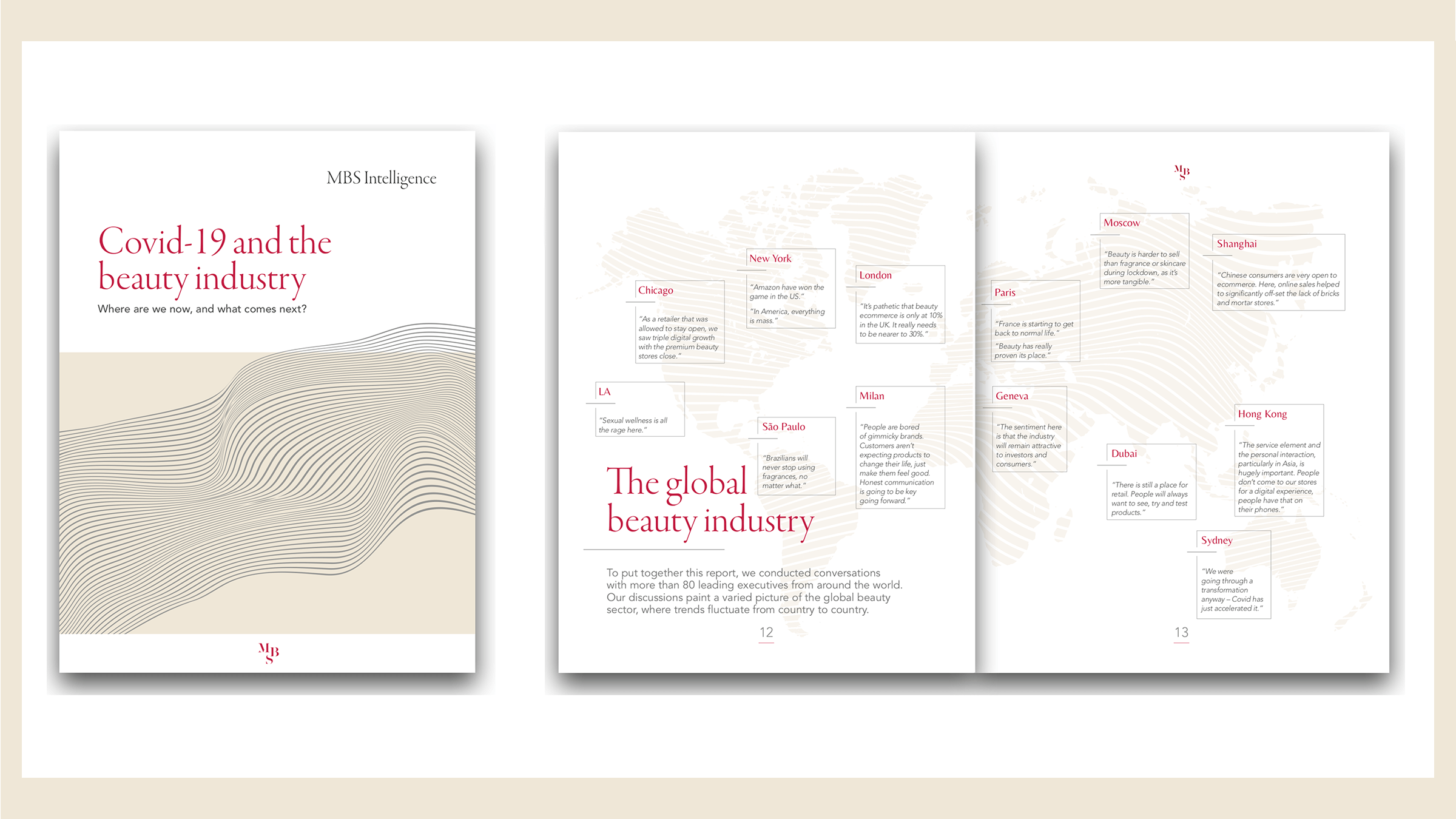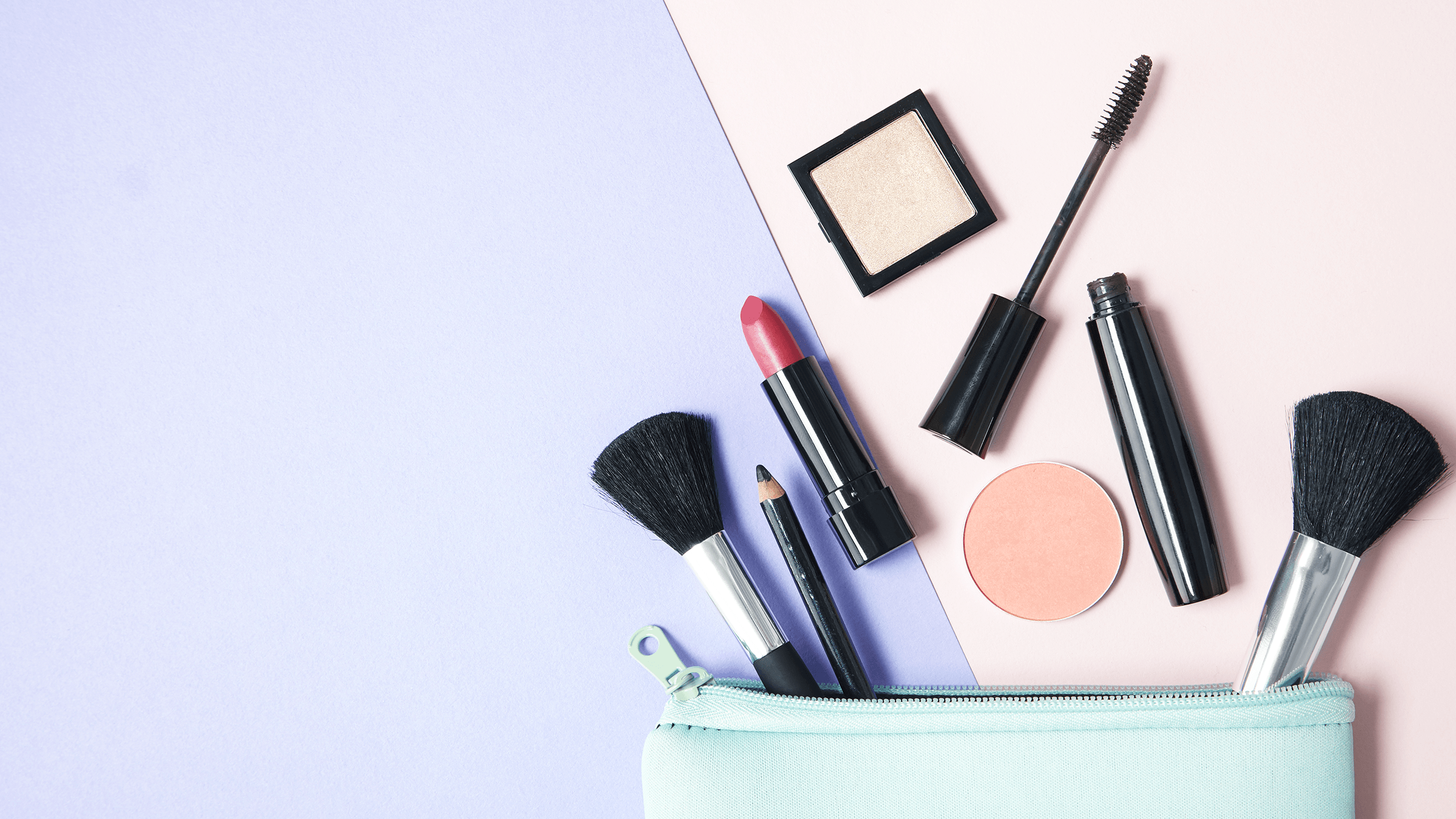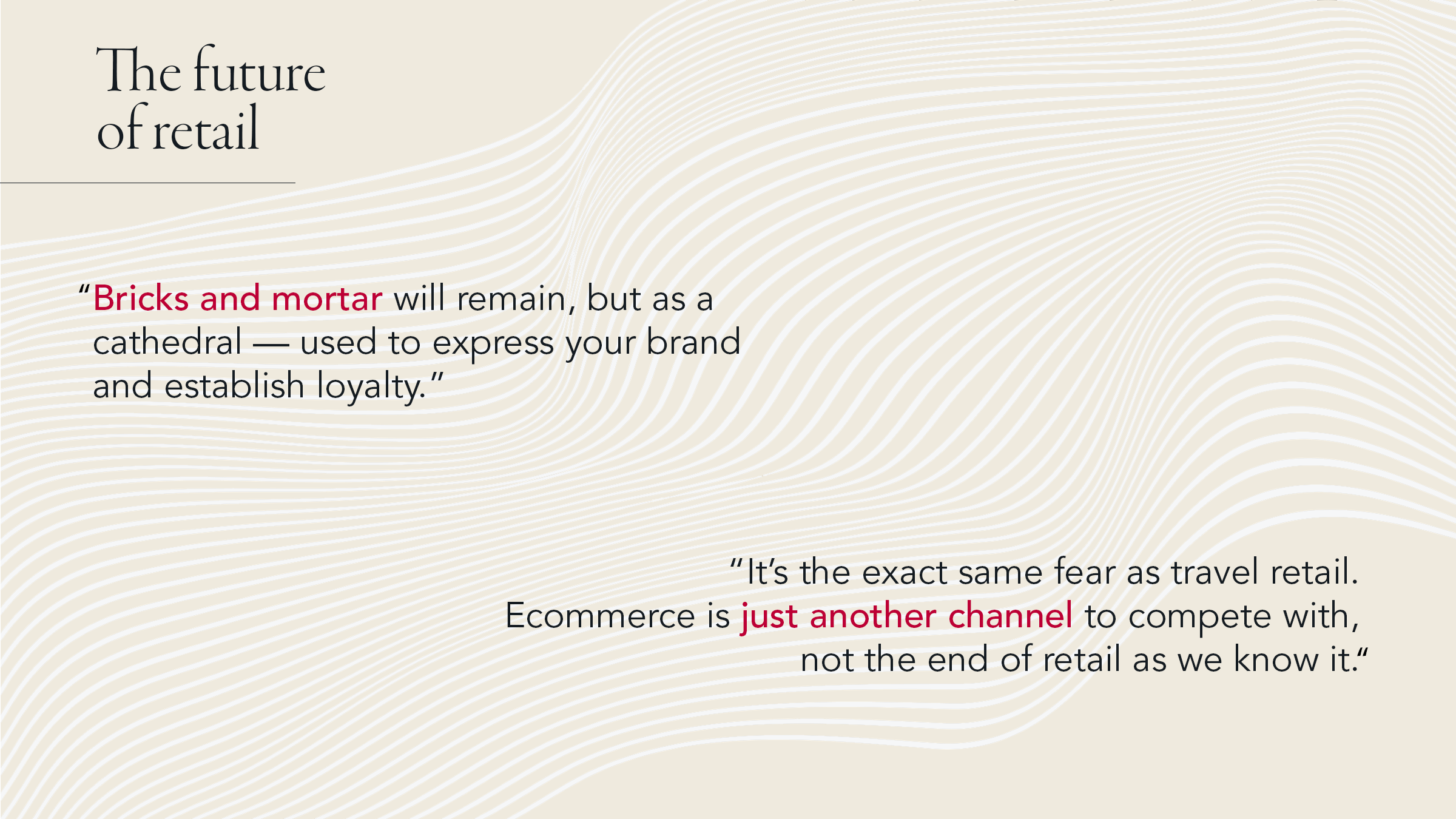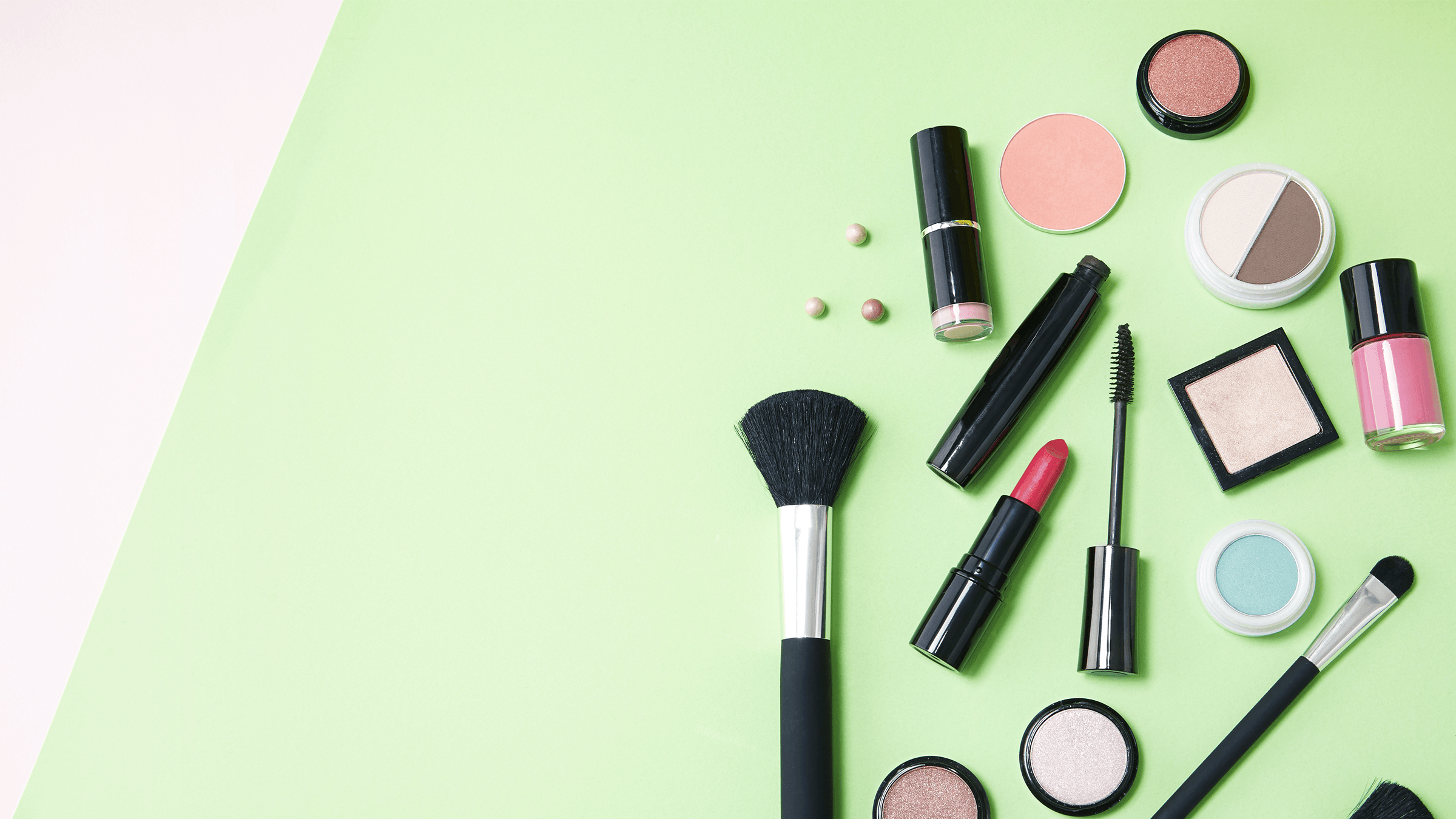It is no secret that beauty is one of the consumer-facing sector’s most exciting industries. Over the past few years, we have seen dozens of high-value mergers and acquisitions, industry-defining innovation and the birth of countless challenger brands which are redefining the beauty landscape. Against this backdrop, and with the industry poised on the cusp of boom, Covid-19 has presented challenges that few could have predicted, shuttering stores, halting product development and forcing the closure of entire sub-sectors. But amid all this disruption we have seen positive change, and it has been an interesting exercise to watch closely as businesses undergo long-awaited digital transformations and find new, exciting ways to engage with customers.
With this in mind, The MBS Group has conducted more than 80 conversations with CEOs, Chairs, Executive Directors, founders and investors from across the beauty sector over the past few months. In doing so, we have been able to gauge the mood in the beauty industry and provide a snapshot of the themes, topics and most pressing conversations taking place in the sector, which we have compiled in our most recent report. What we found is that Covid-19 has accelerated trends at a spectacular pace, fast-tracking crucial discussions around the future of retail, digital capabilities and the prevalence of certain product categories.

Take retail, for example. The beauty industry is split between those executives who see Covid-19 as the final nail in the coffin for stores, and those leaders who feel retail will return to its former glory after the pandemic. The first group argue that replenishment-focused retailers will likely be outrun by experience-led organisations, such as Glossier, with a high-level of technological integration in-store. They predict the high street will undergo a full-scale overhaul, with physical sites used to further brand awareness rather than exclusively sell products. One executive from our research affirmed this view, suggesting that: “bricks and mortar will remain, but as a cathedral – used to express your brand and establish loyalty.” Another agreed, stating that: “businesses need to start getting rid of space… they won’t need it. The clever ones will start to use stores in different ways.”
Our research revealed that those who hold this view typically come from challenger brands or digitally-native businesses, and are often younger. By contrast, older leaders from more mainstream beauty businesses believe that traditional retail still has its place in the sector.
One executive from a leading cosmetics business, for example, compared industry fears of retail downturn to the 1999 debate around the emergence of duty free: “look,” they told us, “it’s the exact same fear as travel retail. Ecommerce is just another channel to compete with – not the end of retail as we know it.” This fierce debate is indicative of a wider trend in the beauty sector, as the industry continues to polarise between old and new ways of manufacturing, trading and marketing.
Central to the discussion is the emergence of digital. Across all sectors, Covid-19 has accelerated digital transformation at an extraordinary pace. The digitisation of the beauty industry is not a new phenomenon – in fact, beauty is leading on digital in the consumer goods space by a long way. However, the crisis has fast-tracked the macrotrend, forcing businesses to find digital solutions for almost all areas of beauty, including customer engagement, marketing, product innovation and testing.
One executive suggested that: “Covid-19 has really made a difference in the market between the already digitised beauty brands and those lagging behind”, but despite this viewpoint, our research identified a number of examples of traditional businesses which had risen to the challenge and quickly adopted digital solutions.
For many large companies in the beauty space, Covid-19 has acted as a watershed moment, jump-starting (sometimes long overdue) digital roll-outs. One global cosmetics and personal care group, for example, shared that it was a significant 18 months ahead of schedule on digital transformation. The group told us it had:
• Established a personal chat service, capturing data to learn more about its customer base;
• Built a new distribution centre in just 17 days; and
• Grown its digital consultants from 17,000 to 30,000.
Looking ahead, this digital revolution will continue – and beauty brands that fail to prioritise technological innovation will no doubt find themselves out-run by more forward-thinking organisations.
With this in mind, and even more so than before, there will be a scramble for digital talent in the sector. A quick look at major beauty brands provides some insight: organisations like Estée Lauder, Shiseido and Coty have been employing bold talent strategies for years, prioritising digital expertise over knowledge of the beauty sector. Almost all of these businesses have a Chief Digital Officer in place who came from a digital business – not a makeup or beauty brand.
From a product perspective, Covid-19 has accelerated the move away from colour cosmetics and towards skincare products. As events were cancelled and offices closed, consumers increasingly factored self-care into their purchasing decisions, opting to spend on skincare and bath-and-body products instead of makeup. This is further evidence of the burgeoning wellness trend. In particular, executives from the luxury channel said they attributed the rise in premium skincare to this macrotrend.
The beauty industry has been historically resilient, and we can look to China for evidence that the beauty sector will fare well in the face of the crisis. According to a recent report from McKinsey, the Chinese beauty industry saw sales dip by up to 80% in February compared with the 2019, but only 20% by March – a rapid rebound given the circumstances.
Going forward, we can expect exciting things from the beauty space. While Covid-19 has certainly taken its toll, we will be watching this fast-paced sector with interest, awaiting the innovation and disruption that I’m sure is to come. You can read our full report on Covid-19’s impact on the beauty sector here – we’d love to know what you think.
Huw.llewellynwaters@thembsgroup.co.uk | Elizabeth.Shelley@thembsgroup.co.uk | @TheMBSGroup










